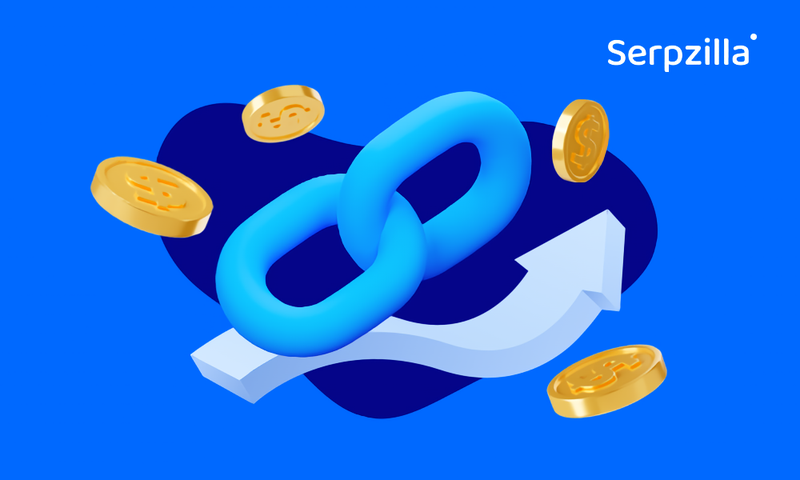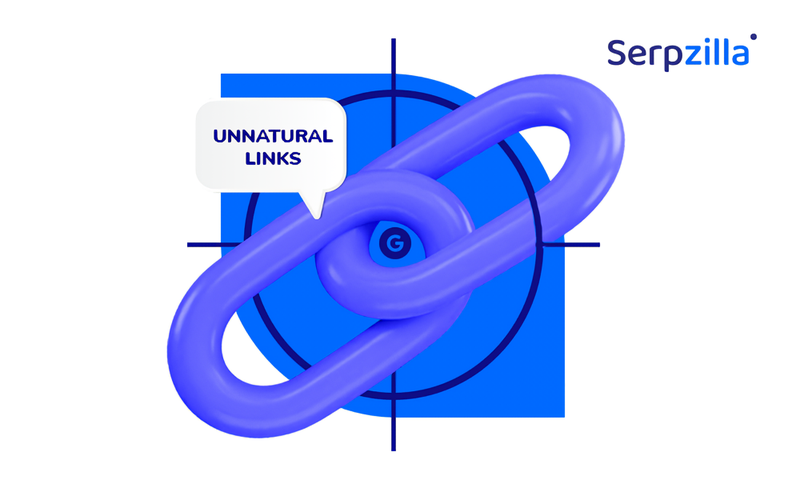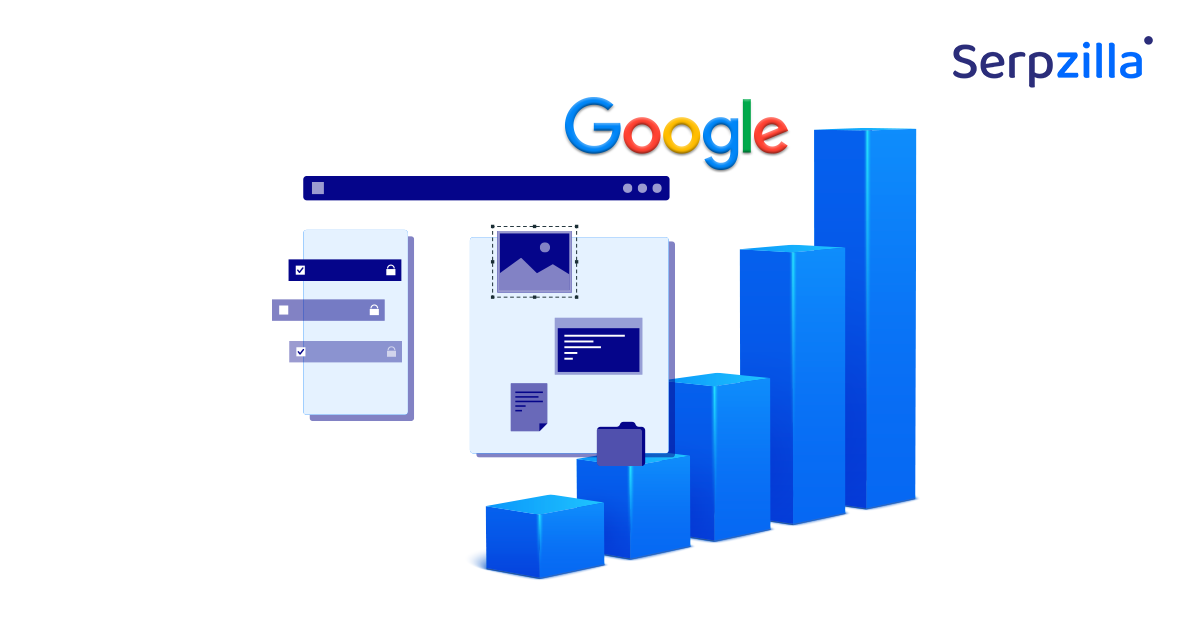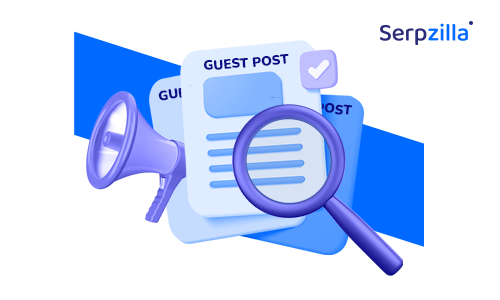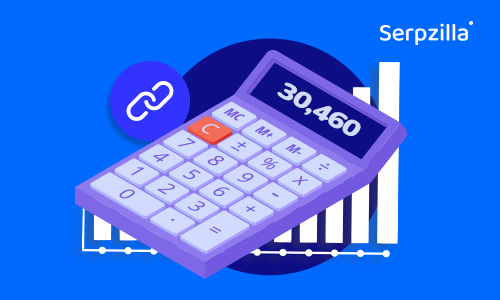At Serpzilla, we understand that two fundamental aspects reign supreme in the digital world: On-page SEO and Off-page SEO. These aspects hold the balance of enhancing a website’s search engine reputation and online visibility. But what is On-page SEO and Off-page SEO? Allow us to dive a little deeper…
On-page SEO is all about sprucing up your site internally. It’s like the interior decor of your dream home, focusing on things such as page optimization, swift loading times, strategic keyword infusion, top-notch meta tags, image optimization, and crafting content that’s not just ‘good enough’ but proactively caters precisely to your audience’s needs.
On the flip side, Off-page SEO ventures beyond your site’s digital borders. Picture it as the metaphorical neighbourhood that your trust website sits within. Off-page SEO encompasses tactics like obtaining authoritative backlinks, earning valuable brand mentions, and harnessing the power of social media for an added reputational boost.
In the following sections, we’ll dive into the deep influence of Off-page SEO on search ranking metrics, explore its multi-layered technical facets, and learn how it complements and elevates the work of your on-page SEO efforts.
How does Off-page SEO complement On-page SEO?
As aforementioned, in the world of SEO, there is a key distinction between Off-page and On-page SEO.
On-page SEO focuses on optimizing internal website elements, acting as the foundational structure of a building. It ensures your website is technically sound, well-designed, and compliant with the standards of your niche.
Conversely, Off-page SEO is the external force that acts as a promotional agent, similar to things such as advertising, reviews, and word-of-mouth recommendations. It elevates a website’s authority through acquiring backlinks from other websites, as well as establishing a strong presence on external platforms.
To form a comprehensive and robust SEO strategy, it is increasingly crucial to blend these two distinct methods. Together, they create a balance that is essential in standing out amongst competitors. Below, we offer a few examples of how Off-page SEO can be an important complementary feature for On-page SEO efforts.
1. DA & Trustworthiness Boost:
With Off-page SEO, securing backlinks from authoritative domains is increasingly essential. If well-respected websites link back to your content, it sends a strong signal of trust to search engines. This turbocharges your domain authority (DA) and solidifies the credibility of your content. If On-page SEO gets you in the game, Off-page SEO establishes your reputation amongst competitors.
2. Expanding Online Footprint:
Enhancing your on-page SEO ensures that your content is first-rate and aligns with the needs of your niche. Alternatively, when it comes to off-page SEO strategies, such as utilizing social media effectively, collaborating with experts, and contributing through guest blogging, you can considerably expand your online presence. This multi-faceted approach not only attracts organic traffic but also brings brand visibility and credibility.
3. Shaping User Perception:
The way users perceive and interact with your brand beyond your website can have a substantial impact on your search engine ranking. Factors such as user reviews, ratings, brand mentions, and comments carry significant weight on your overall authority. Off-page SEO is all about cultivating a positive image, boosting trust, and ultimately improving your performance on search engine results pages.
4. Organic Growth Strategy:
Search engines are all about delivering high-quality relevant content to users. When you master both on-page and off-page SEO, you’re sending a positive message to a search engine’s metrics. It’s not just about having high-quality content; it’s about being a key player within your chosen niche. This comprehensive strategy increases your likelihood of achieving a prominent position in search engine results.
Off-Page SEO Techniques
To ensure your website’s success, off-page SEO techniques are essential in enhancing its visibility, credibility, and authority. When used effectively, these strategies can significantly impact how search engines evaluate a website compared to others. Let’s explore some of the most powerful off-page SEO techniques:
1. Link Building
Link building, a critical facet in off-page SEO techniques, involves the purchase of backlinks from other websites to your own. A backlink essentially constitutes a vote of confidence from another site, signifying that your content holds value and reliability.
– Guest Posting: Crafting articles for other websites within your industry can facilitate the acquisition of quality backlinks, fostering a mutually beneficial exchange of valuable content. Check out Serpzilla’s guide on guest posting here.
– Broken Link Building: This method involves identifying broken links on similar websites and suggesting your content as a fresher replacement. It can prove to be an effective means to secure a backlink while assisting another website.
2. Social Media Signals
Search engines results are symbiotic with social signals like shares, likes, and comments as indications of the quality of content. When you actively participate and interact on social media platforms, it can result in increased visibility for your content and attract more organic traffic to your website.
– Shareable Content: Creating high-quality, engaging, and useful content increases the likelihood of it being shared across social media platforms.
– Engage with Followers: Consistent interaction with your audience on social platforms can amplify your brand’s online presence.
3. Content Marketing
Developing and distributing valuable content not only establishes your brand as an authority within its niche but also naturally attracts backlinks over time, particularly when your content maintains relevance.
– Infographics: Visually appealing and easily shareable, infographics can swiftly become popular and secure backlinks.
– Long-form Content: Comprehensive guides or extensive articles can position your brand as an industry expert.
4. Brand Mentions
Even without a direct link to your website, search engines regard mentions of your brand and content on various platforms as a signal of trust.
– Engage in Conversations: Participate in forums, communities, or discussion platforms relevant to your industry. Contribute meaningfully to ensure your brand receives mentions.
– Collaborate with experts: Partnering with experts in your industry can amplify brand mentions. Influencers in your niche often have a substantial following, and their endorsement or mention of your brand can significantly boost visibility and trust.
5. Local SEO and Niche Directories
Listing your service on local directories or industry-specific platforms can heighten your visibility for local searches.
– Google My Business: Confirm that your business is listed and optimized on Google My Business.
– Niche Directories: Identify directories tailored to your industry and ensure your inclusion amongst competitors.
6. Reviews
Online reviews hold the ability to influence the perception of your brand. Positive reviews on platforms like Google, Trustpilot, or industry-specific review sites can boost your credibility and authority.
– Encourage Reviews: Request satisfied customers to leave positive reviews.
– Respond to Reviews: Irrespective of their tone, always engage with reviewers.
7. Events and Forum Participation
Engaging in industry events or partaking in pertinent forums can contribute to authority building and the acquisition of quality backlinks.
– Webinars: Host or take part in webinars, which can subsequently be shared across diverse platforms.
– Forums: Engage in forums relevant to your niche, offer valuable insights and where necessary, link back to your content.
Each of these techniques requires a calculated approach and strategy. Beware that some may deliver quick results, while others contribute to long-term growth and sustainability. The crucial factor is understanding your target audience, business dynamics, and continuously adapting to changing industry standards.
My apologies for the misunderstanding. Here’s the revised version without the web formatting.
Off-Page SEO Tools and Resources
Effective off-page SEO relies on the right tools and platforms to streamline your efforts. Let’s explore key tools and resources without the promotional fluff:
1. Ahrefs
– Overview: Ahrefs is a comprehensive SEO tool with a reliable data set on backlinks, keywords, and competitor analysis.
– Features: It offers a complete site explorer, content explorer, keyword explorer, and rank tracker.
– Use for Off-Page SEO: Ahrefs helps you scrutinize your site’s backlink profile, uncover broken links, examine competitor backlinks, and identify new link-building opportunities.
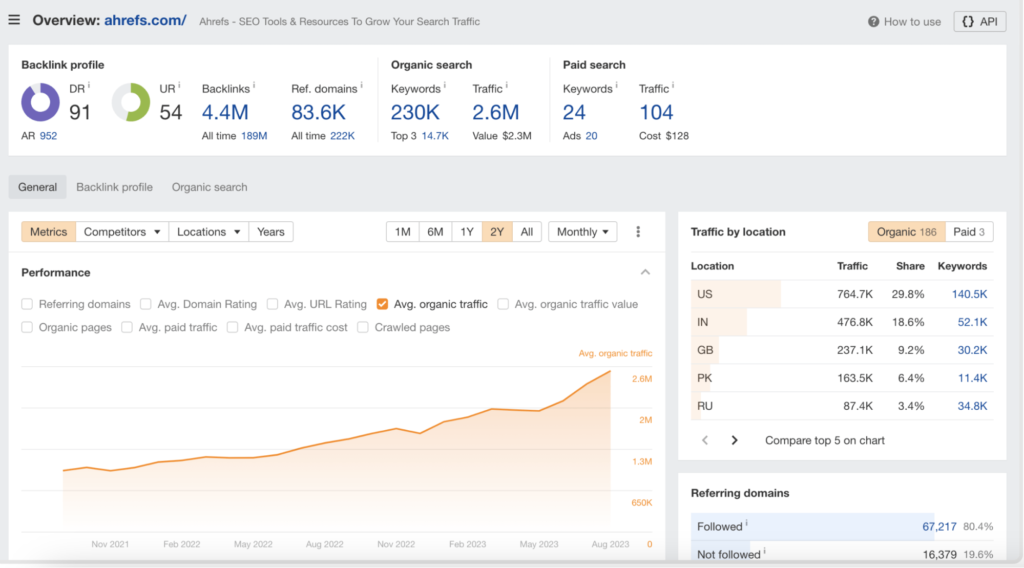
2. SEMrush
– Overview: SEMrush is an all-in-one SEO toolkit known for its competitive analysis capabilities.
– Features: The service offers organic research, keyword analysis, site audits, and backlink examination, among other features.
– Use for Off-Page SEO: Utilise SEMrush to monitor brand mentions, track backlink progress, and locate domains suitable for guest posting and link-building.
3. BuzzSumo
– Overview: BuzzSumo is a content research and monitoring tool, helping you uncover trending content within your niche.
– Features: It facilitates content discovery, influencer identification, and content alerts, potentially increasing engagement opportunities.
– Use for Off-Page SEO: Identifying the content making waves in your industry can inform your approaches, increasing your chances of earning organic backlinks.
4. Moz Link Explorer
– Overview: Moz Link Explorer reveals a website’s backlink profile and provides metrics like Domain Authority and Page Authority.
– Features: It allows deep backlink analysis, domain discovery, and backlink quality evaluation.
– Use for Off-Page SEO: Crucial for choosing high-quality backlinks and avoiding harmful ones that could result in penalties.
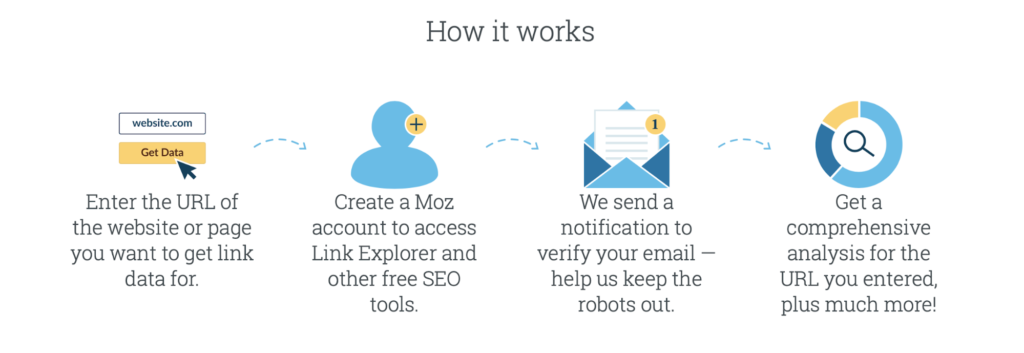
5. Mention
– Overview: Mention is a brand monitoring tool that tracks mentions across the web and social media.
– Features: It provides real-time monitoring, competitor analysis, and custom alerts.
– Use for Off-Page SEO: By tracking brand mentions, you can engage with potential customers, proactively maintain your online reputation, and identify unlinked mentions that may be convertible into backlinks.
These tools can significantly boost your off-page SEO efforts. However, remember that the real difference lies in the strategies and actions you implement based on the insights these tools provide.
Evaluating the Effectiveness of Off-Page SEO
While off-page SEO significantly contributes to a website’s search engine ranking, regular assessment of its performance is equally important. This ongoing evaluation ensures that your strategies are effective and allows for further optimization. Here’s how you can measure the efficiency of your off-page SEO tactics:
Backlink Profile Analysis
Overview: This involves a thorough examination of your website’s backlinks, considering factors like quantity, quality, relevance and domain authority.
Indicators: Key indicators include the total number of backlinks, diversity in which domains refer to you, domain authority, and the correct distribution of anchor text.
Tools to Use: Ahrefs, Moz’s Link Explorer, and SEMrush are valuable for in-depth backlink analysis.
Organic Traffic Monitoring
Overview: A successful off-page SEO campaign should result in an increase in overall organic traffic.
Indicators: Monitor the number of visitors arriving via search engines and track the keywords driving this traffic.
Tools to Use: Google Analytics offers insights into organic traffic sources and user behaviour.
Brand Mentions
Overview: Not all brand mentions come with backlinks but are important for brand visibility.
Indicators: Keep an eye on the frequency and context of brand mentions. A rise in mentions suggests effective off-page efforts. Tools to Use: Mention and Google Alerts are useful for real-time brand mention tracking.

Referral Traffic
Overview: Referral traffic refers to visitors landing on your site through external links, a key indicator of effective link-building campaigns.
Indicators: Increased referral traffic from high authority websites reflects the success of your off-page SEO strategies.
Tools to Use: Google Analytics provides detailed insights into referral traffic sources.
Domain Authority (DA) and Page Authority (PA)
Overview: Moz’s Domain Authority (DA) and Page Authority (PA) metrics offer insights into a website’s likelihood to rank on search engine result pages. Be sure to also check out our article on Domain Authority.
Indicators: An increase in DA or PA may signify enhanced website authority, often attributed to the effectiveness of off-page SEO efforts.
Tools to Use: Moz’s Link Explorer is a reliable resource for assessing DA and PA scores, providing useful data for refining your off-page SEO strategies and enhancing your website’s SEO performance.
Rankings for Target Keywords
Overview: One of the primary goals of off-page SEO is to enhance rankings for specific niche keywords.
Indicators: Improved keyword rankings after implementing off-page SEO strategies signal the effectiveness of this factor.
Tools to Use: Google Search Console, Ahrefs, and SEMrush assist in keyword ranking monitoring. Also, familiarise yourself with the types of keywords, and when to use them.
Competitor Benchmarking
Overview: Comparing off-page SEO results with competitors helps assess your standing and identify areas for improvement.
Indicators: Assess backlink gaps, referring domains, and brand mentions compared to other websites in your niche.
Tools to Use: SEMrush’s Competitor Analysis and Ahrefs’ Competitor Backlink Checker are useful for this purpose.
Regularly monitoring these metrics is crucial for understanding the success of your off-page SEO strategies and making required changes. Ongoing evaluations ensure you remain on the right track and optimize for better results.
Challenges in Off-Page SEO
Off-page SEO, while an increasingly effective strategy, presents distinct challenges that also require attention. Recognizing and addressing these challenges is essential for the success of off-page SEO campaigns. Here are a few common hurdles and effective approaches to navigate them:
Building High-Quality Backlinks
Challenge: Acquiring backlinks from authoritative and relevant websites is a demanding task, as most sites are hesitant to see the benefit of linking without incentives.
Solution: Focus on crafting compelling, shareable content. Quality content naturally attracts backlinks. Engage in targeted outreach to experts, utilise guest posting, and build lasting industry relationships to secure valuable backlinks over time. You may also buy high quality backlinks from services such as Serpzilla.
Boost your SEO results! Link building has become fast and easy with Serpzilla. Buy quality backlinks on authority websites with high DR.
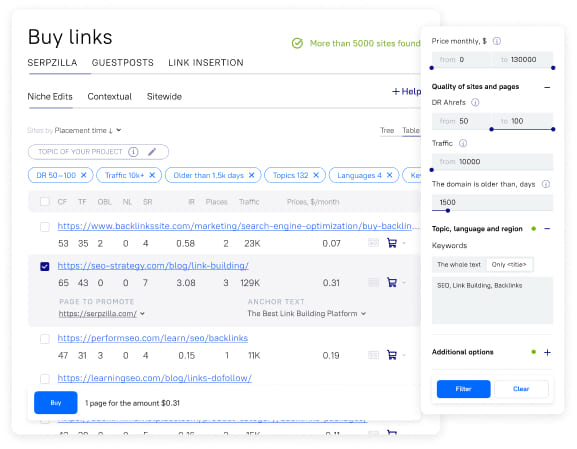
Dealing with Toxic Backlinks
Challenge: Not all backlinks are beneficial, with some potentially damaging your site’s reputation and metrics, especially those from spammy or irrelevant sources.
Solution: Routinely audit your backlink profile. Employ tools like Ahrefs or Google Search Console to identify and disavow toxic backlinks.
Staying Updated with Algorithm Changes
Challenge: Frequent algorithm updates by search engines, notably Google, can impact off-page SEO metrics.
Solution: Be proactive regarding SEO news and evolving algorithms. Adjust off-page strategies accordingly. Resources such as Moz and Search Engine Journal regularly cover updates and best practices.
Quantifying ROI on Off-Page Efforts
Challenge: Off-page SEO encompasses various tactics, making a singular ROI assessment challenging.
Solution: Establish clear Key Performance Indicators (KPIs) before launching off-page SEO campaigns. Regularly monitor areas such as referral traffic, organic rankings, and domain authority to gauge success.
Navigating Ethical Boundaries
Challenge: The temptation for quick results can lead to manipulative black-hat or unethical SEO techniques, risking penalties.
Solution: Adhere to white-hat SEO practices and avoid penalties, don’t use tactics like precarious link purchasing, spammy comments, and participation in link schemes.
Maintaining Brand Consistency
Challenge: Off-page SEO operates across a number of platforms, making consistent brand messaging a challenge to adhere to.
Solution: Develop all-inclusive brand guidelines to ensure all content – whether guest posts, social media updates, or forum responses – aligns with your overall brand image.
Handling Negative Feedback
Challenge: Negative reviews and feedback are inevitable, impacting brand perception and, indirectly, off-page SEO.
Solution: Proactively address negative feedback professionally and politely. Encourage satisfied customers to leave positive reviews and showcase the quality of your brand.
Understanding and proactively addressing these challenges are vital for the success of off-page SEO endeavors. A commitment to organic techniques and best practices, coupled with adaptability and proactive management, is key to overcoming these obstacles.
Conclusion
Off-page SEO goes beyond just focusing on link building, encompassing trust-building, authority establishment, and network building. Techniques like content marketing, social engagement, and brand mentions reinforce your SEO strategy and position your website as an authoritative brand.
Off-page SEO has real challenges, from securing high-quality backlinks to handling algorithm changes. However, with vigilance and ethical practices, these challenges can be overcome.
Utilize the latest tools and platforms, along with mastering off-page techniques, to enhance your presence. Embrace off-page SEO, understand its facets, and execute it consistently—it can be your digital marketing game-changer.




